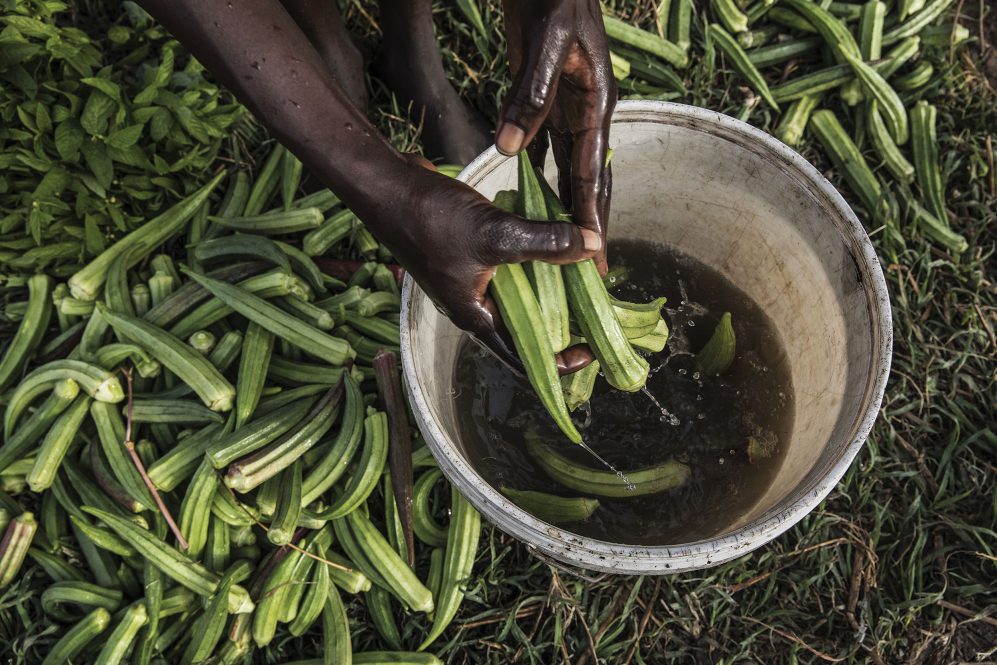“Surprised, thrilled, humbled. All of those things,” says Steven Were Omamo ’88 MS of his reaction when the United Nations World Food Programme (WFP) was awarded the Nobel Peace Prize last fall. An agricultural economist with a master’s degree from the College of Agriculture, Health and Natural Resources, Omamo is WFP’s Country Director in Ethiopia. He leads a team of 850 relief and development workers, spread across 15 offices, who help feed some 8 million people a year.
“We’re a big organization, but not as well-known as some,” he says of the WFP, which is the food assistance branch of the U.N. “In many countries where we work, there are political sensitivities. We don’t want to create hurdles for our delivery of food, so we tend to speak quietly. For the organization to be recognized was extraordinary.”
If other agencies have higher profiles, few can match WFP’s impact. It is the world’s largest humanitarian organization, annually delivering some 3 million tons of food and over $2 billion worth of cash to well over 100 million people in 90 countries. Every day it sends thousands of trucks, ships, and planes into some of the most challenging places on Earth, many of them devastated by conflicts whose combatants use hunger as a weapon.
In bestowing the Peace Prize, the Nobel committee drew explicit attention to the link between war and hunger, highlighting how one contributes to the other in a vicious cycle: strife disrupts food security, while scarcity can trigger conflict that flares into violence.
“We will never achieve the goal of zero hunger unless we also put an end to war,” the Norwegian committee noted in its prize announcement. “The World Food Programme has taken the lead in combining humanitarian work with peace efforts through pioneering projects in South America, Africa, and Asia.”
Armed conflict is just one of several overlapping crises Omamo contends with in Ethiopia, where WFP partners with the government and other actors to keep millions of people from starvation. Recently one of his supply convoys disappeared while attempting to deliver humanitarian aid in the Tigray region, a mountainous area in the north of the country where the federal army and its allies have been battling rebel forces since November. The United Nations estimates the conflict has displaced more than a million people.
“There were three trucks,” Omamo says. “They sent an SOS signal and for two hours, we couldn’t contact them. Finally, we managed to raise them. They had been caught in a battle. They were not targets, but everything was unfolding in front of them.” The relief workers escaped, and the mission would proceed another day. But the underlying conditions that drive hunger in many parts of Ethiopia — and around the globe — remain in place. In addition to war, Omamo says, these include climate shocks, gender inequity, chronic poverty, lack of local control of natural resources such as water, and now, economic deterioration due to the pandemic. “I really believe that Ethiopia is at the center of the world,” he says, “in the sense that every issue you find around the world — both positive and less than positive — is expressed here at scale.”



